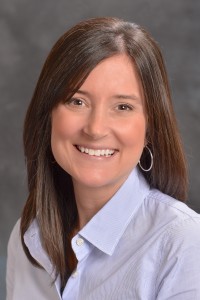Alyson O’Daniel, PhD
Assistant Professor, UIndy Department of Anthropology
(May 2016 & Jan 2017 Teams)
How did you become connected with this mission in Texas?
I learned about this mission through Dr. Krista Latham’s efforts to publicize the excellent work her team is doing, as well as the deeply moving humanitarian crisis to which their work responds. After several casual conversations about the intersections between the
goals and work of Beyond Borders and my work with conditions of vulnerability in urban United States, we decided to join forces and investigate the sociopolitical dimensions of forensic work in this context.
Why is this humanitarian work important to you?
As a cultural anthropologist dedicated to issues of vulnerability and social justice, I was drawn to the compassion and political importance of this volunteer effort. I am an anthropologist who believes that our work should be used to spotlight conditions of inequality that breed human tragedy and, in the face of that, the extraordinary courage and resilience exemplified by those who dare to survive and/or endeavor to change conditions of inequality.
What are some of the biggest challenges you will face while in Texas?
In some ways, the challenges I will face will be very different than what forensic science team members will experience. As a qualitative researcher examining an aspect of response to the crisis, my learning curve will be steep. As I work to unravel the sociopolitical dimensions and experience of the initiative, I’m also learning about techniques of knowledge production among forensic scientists. I expect to be overwhelmed by the volume of information and intricacies of the practice. In other ways, however, I expect some challenges will be similarly shared among us. Although it is my understanding that forensic professionals learn to “see” human remains in very particular light, the reality of these deaths as tragic and probably preventable can’t be very far from the surface for anyone. The thrust of this work is profoundly re-humanizing and, in that way, emotionally challenging by nature.
What’s one thing people probably don’t know about you until they’ve known you a long time?
That a question like this will have me stumped for days.
